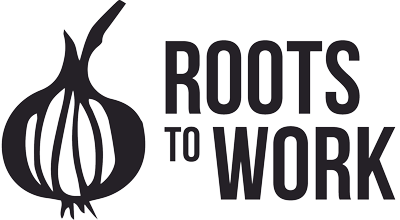
There are a number of different paths that someone can take to get into the sustainable food and farming sector. Some people may pursue this path from the start of their career (early career or new entrants) and others might be career changers or movers. People rarely go on linear paths these days!
Academic routes into sustainable food and farming
The sector is remarkably broad, offering numerous pathways to entry. Some people take the academic route and study a sector-relevant degree such as Sara Azeem who studied economics and global sustainable development at the University of Warwick before going on to become a food partnership coordinator.
The university route involves pursuing specialised academic programmes designed to provide a deep understanding of the complexities of food systems and sustainable practices. Students can enroll in undergraduate degrees such as agricultural science, agriculture for sustainable devlopment, horticulture, sustainable agriculture and food production or food security which lay the groundwork in relevant theories and practical skills. At the graduate level, master's programmes in sustainable food and farming or related fields offer more focused and advanced study, often integrating interdisciplinary courses.
Degrees from any discipline will also come in handy in the sector. After all, every organisations needs marketing, finance or HR capacity. And there are numerous roles that focus on skills such as campaigning, project development, policy and management. If there's someone that inspires you in the sector, take a look at their LinkedIn page to see how they got there. You might actually be surprised!
An academic route is not compulsory to enter the sector. Below are several other pathways into the sector.
Volunteering in sustainable food
Volunteering with organisations involved in sustainable food and farming can provide practical experience, enhance your resume, and expand professional networks. Organisations such as Sustainable Food Trust, Wen (Women's Environmental Network), School Food Matters, OrganicLea and Made In Hackney offer opportunities to volunteer and make an impact. Opportunities at these organisations include School Food Matters' gardeners and chefs, or project officers in schools, and OrganicLea has horticultural assistants, box packing, and kitchen volunteers. Dora Taylor, food anthropologist, writer, chef and activist who volunteered for Made In Hackney told us in a blog,
‘Get involved in your local community garden - it's a great way to meet people.’
Volunteering allows you to connect to your community and make it a better place. Find more Volunteering opportunities on LinkedIn and environmentjob or reach out to organisations directly.
Work experience in the sector
Starting in entry-level positions at farms, food co-ops, farmers' markets, or sustainably-focused organisations and businesses can provide valuable experience. Over time, on-the-job learning and networking can lead to more advanced roles as well as demonstrating what you do - and don't - like to do. Organisations such as Defra (Department for environment, food and rural affairs) offer interships and work experience. The best way to secure internships is to utilise online job boards such as Roots to Work and keep an eye out for opportunities via LinkedIn.
Self-directed learning
Self-directed learning in the sustainable food and farming industry empowers individuals to take control of their educational journeys. By leveraging a wealth of resources, from online courses and webinars to local workshops and community projects, self-directed learners can stay up-to-date on the latest innovations and research. This personalised and proactive approach not only enhances their knowledge and skills but also cultivates a lifelong commitment to sustainability, resilience, and environmental stewardship in the sustainable food and farming sector. Events such as the Emergent Generation Summer Gathering 2024 is an opportunity to learn more about the sector and network with individuals with similar interests.
Carol Adams, director of Food Adventure Social Enterprise and Cardiff Farmers Markets told us in our careers webinar,
‘My studies were not related to food or sustainability, anytime I saw a course or studies that I could access throughout my whole life, I'm always learning.’
The variety of educational and career options ensures that there is a place for everyone interested in creating a more sustainable and equitable food system. Whatever route you come into the sector, we hope that you can secure a job that fulfils your passion and develops your skills.
Find out more about career opportunities via the Roots to Work jobseekers resource page.



